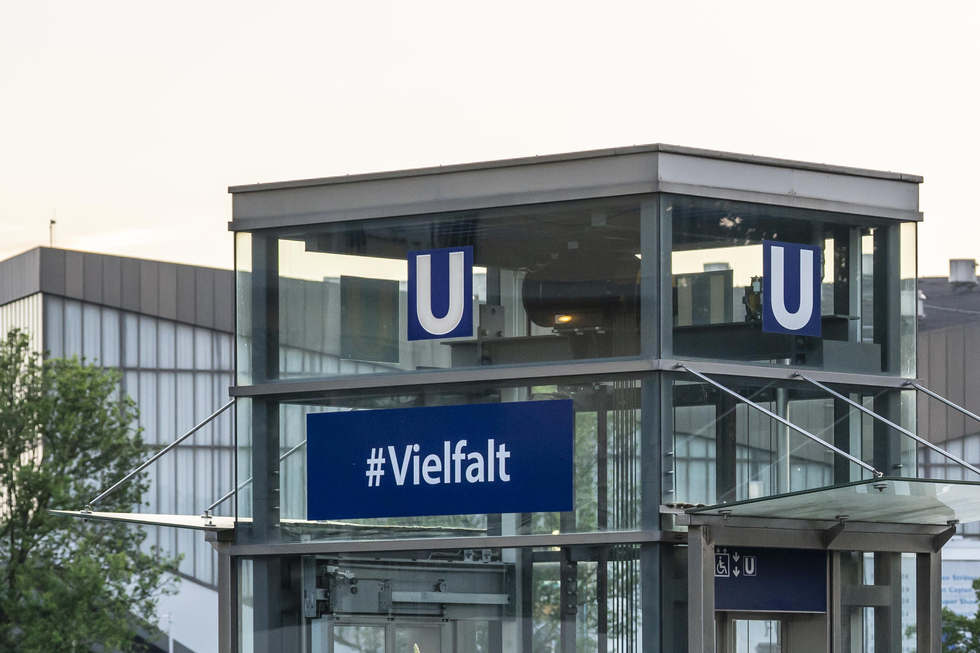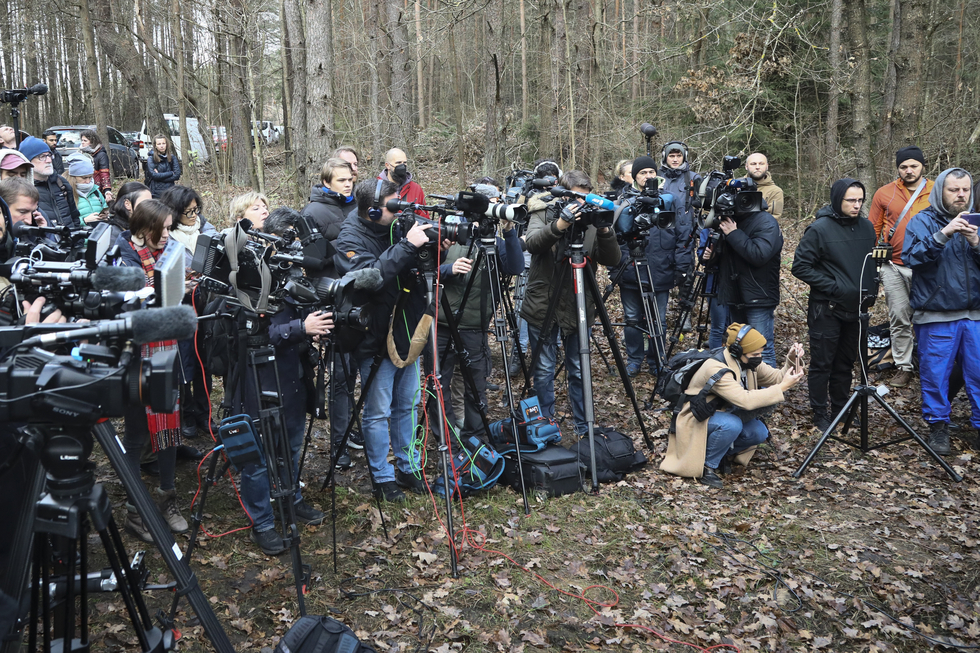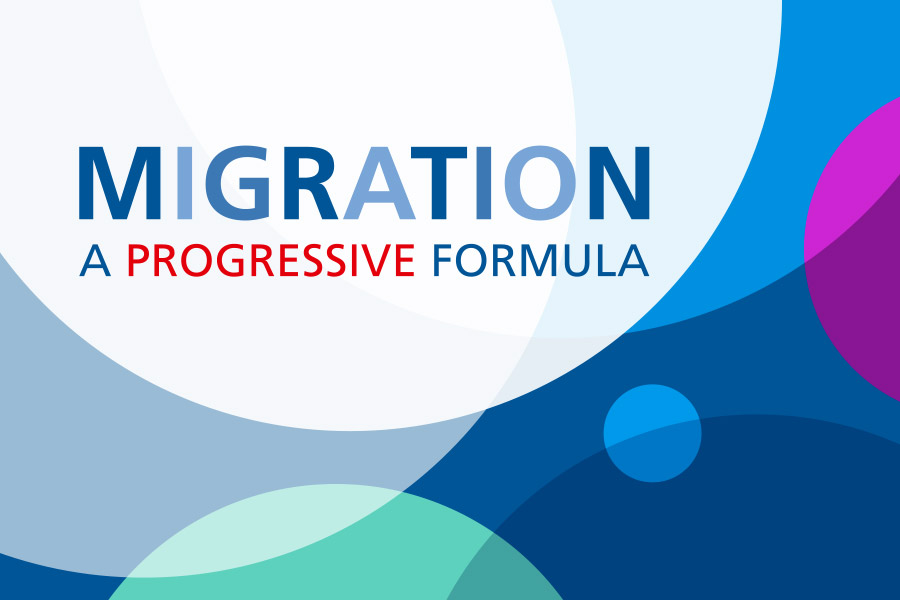A progressive approach to explaining migration: A transnational perspective

This article by Iryna Pinchuk was written for the International Conference 'Migration - a progressive formula' organised by the Friedrich-Ebert-Stiftung. Together with international representatives from politics, civil society, the media and academia, we discussed the poignant issues and challenges of Human Mobility and formulated progressive responses. Read all articles here!
It’s the day of the conference. Guests and speakers have gathered in the foyer of the building and are shaking the rain off their cold and damp jackets. I have something I want to shake off, too. A strange, uneasy feeling that sometimes becomes close to unbearable for me, almost pushing me to my limits. And this is where I have to be careful. Nowadays, limits, boundaries, borders like this require a special kind of vigilance. These days, I might well be subject to border checks and controls.
Although I am not literally standing at any kind of border, I feel as though I have internalised the restrictions that borders represent, carrying them around inside of me. They are forever present – in every facet of my life, big or small. It will be a while before I feel I “belong” at long last, before people stop welcoming me like a newcomer.
It’s the day of the conference. The participants and speakers are all collecting their name badges. I have one too. Besides my name, mine also says that I am a “conference organiser”. There is no space left to add the word “migrant”, which certainly makes things clearer and less awkward for me.
So far, my feelings about migration have been mixed: veering from denial to total acceptance. At some point, the new reality finally hit me, at a point where the old rules no longer applied but the new ones had not yet taken effect, where I wanted to be the person I used to be but that was no longer an option. It meant starting over, from the very beginning, redefining my relationship with my own country, culture – and with myself.
As someone with a language degree, my first instinct is to try and grasp new phenomena by looking at the etymology. When it comes to the word “migration”, things seem to be quite black and white: “movement” or “journey”, says the OED. But how can we define this term clearly, and from a progressive perspective at that? And by redefining the term, can I really hope for even the slightest improvement?
A new migration narrative requires flexibility and how much flexibility is truly possible when boundaries are rigid and rules set in stone. The current migration narrative is polarising and is not necessarily being shaped by the right people.
Back to the day of the conference. Everyone is taking their seats in the big conference hall. So many people from a myriad different fields have come together, excited and ready to discuss the diverse dimensions of migration. And this is all happening at the very time the “migration debate” is dominating the headlines. At a time when the shock about events in Solingen is still so raw. At a time when the first deportations to Turkey have begun. Arguably, it is indeed high time we started talking about these things. It seems this problem is only now beginning to escalate into what can only be described as an alarmist discourse which calls for the active involvement of each and every one of us.
A progressive migration narrative must place the individual centre stage – not the numbers of migrants, not the benefits being paid to them (or whatever other negative connotation first comes to mind when you hear the word refugee) …. When rational considerations of social benefits or racial prejudice remain front and centre – and not the individual – we lose sight of the people who often have to fight for their lives.
Nowadays it’s not a question of whether you are a good or bad migrant. Such a clear-cut distinction is no longer desirable. What there is, however, is an ideal image of who is more suited to our society: someone who works hard to learn German in the hope of receiving the ultimate compliment – “Your German is excellent!”. Someone who is in gainful employment but still essentially belongs to the lowest social class with only limited chances of social advancement. Preferably someone who understands the “leitkultur” or “leading culture”, makes a contribution to society, and in the best case scenario, as certain politicians would like to see, has healthy teeth and doesn’t deprive Germans of their doctor’s appointments… The demands are, it would seem, more exacting than, say, a refugee from a war zone could ever imagine. Can integration policy only succeed if the reality meets these expectations to the letter? In actual fact, migration policy will only be a success if (and when) we accept that our society is already diverse and this very diversity is not our end goal.
When it comes to people, rational debates are highly likely to fail. As Max Frisch very aptly pointed out: “We asked for workers, but it was people that came”. An overly simplistic concept of migration means our efforts in this area will never be more than that.
A progressive migration narrative is based on willingness to accept that our immigration society with all its diverse traits is nothing new to the 21st century, nor is it a conspiracy theory or a thing of the past – and the same applies to integration. Moreover, contrary to what many of us would probably wish for, it is not a process that can be “completed”. It isn’t something we can just cross off our long to-do list. It takes time, effort and an open-minded approach to dialogue – especially with those affected.
It’s the day of the conference. We haven’t been explicitly told who can and can’t cross the border. What they do say over and over, however, is that we have reached our limits, the limits of our capacity. And that’s a boundary where all of us will be checked.
About
Iryna Pinchuk is currently an intern in ‘Democracy, Society and Innovation‘ Department of the Friedrich-Ebert-Stiftung. Since fleeing Ukraine in 2022, she has been studying ‘Transcultural Studies‘ at the University of Bremen and takes part in theScholarship Programme of the Friedrich-Ebert-Stiftung. She is also a spokesperson for the University of Applied Sciences in Bremen and is interested in issues of integration policy.
The opinions and statements of the guest author expressed in the article do not necessarily reflect the position of the Friedrich-Ebert-Stiftung.


